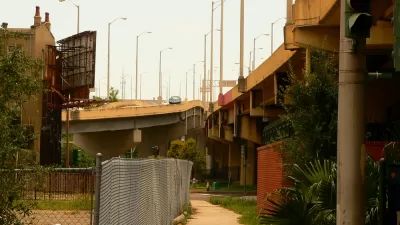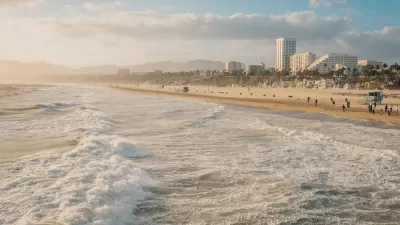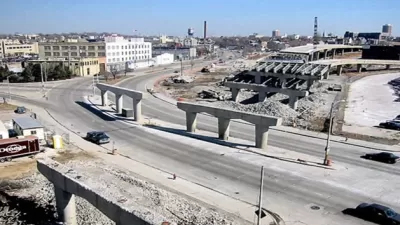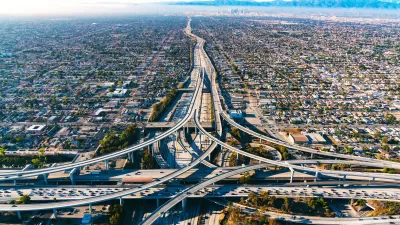The recently passed infrastructure bill dedicates $1 billion to freeway removal and capping, but the sum is only a 'first step' toward redressing the injustices perpetuated by urban highway projects.

Wyatt Gordon describes the Biden administration's push to use newly available infrastructure funds to rectify some of the injustices wrought by urban renewal policies and the interstate highway system that have ravaged neighborhoods and destroyed homes, businesses, and livelihoods over the last half century.
According to Transportation Secretary Pete Buttigieg, "Twenty-first century planning has to be about how any new transportation asset is integrating the surrounding areas. How do we knit it all together in a way that benefits all?" The new infrastructure bill allocates $1 billion to freeway removal and capping projects, which could prove 'transformational' if distributed effectively.
With $1.2 trillion in new spending in the bipartisan infrastructure bill on everything from Amtrak and public transit to bridge repairs and road expansions, ensuring equitable engagement surrounding such huge investments will be no easy feat.
The $1 billion dedicated to freeway removal could be a drop in the bucket compared to the nation's needs. According to Gordon, "Tearing out an expressway which decimated the Tremé neighborhood of New Orleans has been estimated to cost $500 million alone." But Buttigieg characterizes that initial spending as a "first step" towards restoring and reconnecting communities.
As awareness of the damaging impacts of urban freeways grows, highway removal is quickly gaining traction as an important tool for fighting injustice, improving neighborhood connectivity, and providing economic opportunities in underserved areas. While local leaders frequently oppose freeway construction projects—see Houston's beleaguered Interstate 45 expansion as an example—federal agencies have been slow to change decades-old policies that hinder highway removal. Advocates say state and federal DOTs should rethink their 'throughput at all costs' mentality in favor of creating streets that are safe and economically vibrant.
FULL STORY: Could Biden’s Infrastructure Bill Help Heal the Scars Highways Created?

Alabama: Trump Terminates Settlements for Black Communities Harmed By Raw Sewage
Trump deemed the landmark civil rights agreement “illegal DEI and environmental justice policy.”

Planetizen Federal Action Tracker
A weekly monitor of how Trump’s orders and actions are impacting planners and planning in America.

Why Should We Subsidize Public Transportation?
Many public transit agencies face financial stress due to rising costs, declining fare revenue, and declining subsidies. Transit advocates must provide a strong business case for increasing public transit funding.

Understanding Road Diets
An explainer from Momentum highlights the advantages of reducing vehicle lanes in favor of more bike, transit, and pedestrian infrastructure.

New California Law Regulates Warehouse Pollution
A new law tightens building and emissions regulations for large distribution warehouses to mitigate air pollution and traffic in surrounding communities.

Phoenix Announces Opening Date for Light Rail Extension
The South Central extension will connect South Phoenix to downtown and other major hubs starting on June 7.
Urban Design for Planners 1: Software Tools
This six-course series explores essential urban design concepts using open source software and equips planners with the tools they need to participate fully in the urban design process.
Planning for Universal Design
Learn the tools for implementing Universal Design in planning regulations.
Caltrans
Smith Gee Studio
Institute for Housing and Urban Development Studies (IHS)
City of Grandview
Harvard GSD Executive Education
Toledo-Lucas County Plan Commissions
Salt Lake City
NYU Wagner Graduate School of Public Service





























